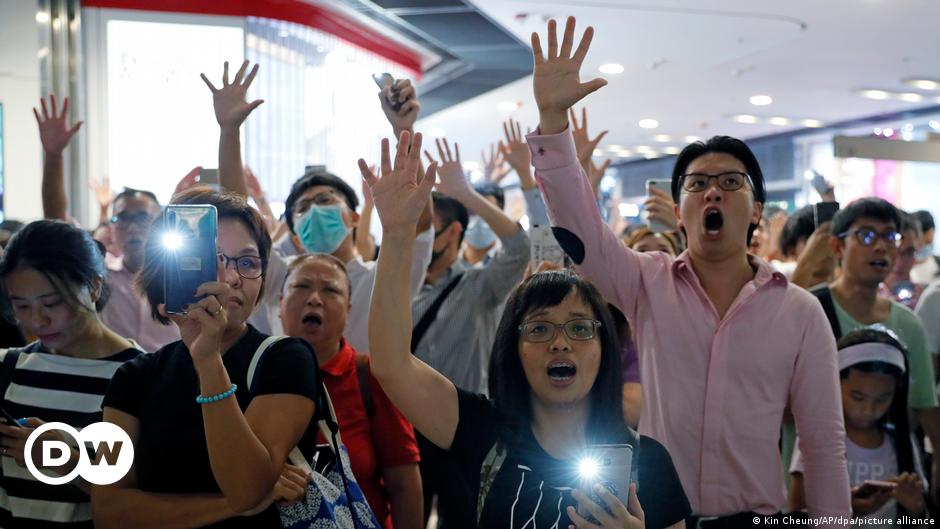An appeals court has granted a Hong Kong government request to ban a popular protest song. The ruling deepens concerns about the ebbing away of freedom in the semi-autonomous territory.
Hong Kong’s appeal court on Wednesday banned the protest song “Glory to Hong Kong” — an anthem popularized during the territory’s widespread democracy demonstrations in 2019.
The decision makes the song the first to be prohibited since Britain handed the former colony back to China in 1997.
Why has the song upset authorities?
Demonstrators often sang the anonymously written piece during their pro-democracy protests.
Its lyrics include the slogan “Liberate Hong Kong; Revolution of our times,” and it had already become dangerous to play or sing after authorities crushed the demonstrations.
Officials have lobbied Google to remove the song from search results and video platforms, although with little success.
In one mix-up that particularly embarrassed officials, the song was played as the city’s anthem at an international sporting event instead of China’s “March of the Volunteers.”
Hong Kong was a vision of what China could be, instead the CCP chose authoritarianism and have ruined it.
Hong Kong was never a vision for what China could be though. British rule was also very authoritarian. Much of the repression of free speech today is being done using laws the British enacted. Even when the British decided to introduce democratic reforms to HK, they explicitly gave outsized control of the city to corporations.
This is the best summary I could come up with:
Its lyrics include the slogan “Liberate Hong Kong; Revolution of our times,” and it had already become dangerous to play or sing after authorities crushed the demonstrations.
In one mix-up that particularly embarrassed officials, the song was played as the city’s anthem at an international sporting event instead of China’s “March of the Volunteers.”
Although Hong Kong police said the content was a deliberate insult to China’s national anthem, Google left the videos online.
Hong Kong’s High Court last year made a surprise ruling against the ban, which it said could have a “chilling effect” on innocent third parties.
Poon said the injunction was needed as “criminal law alone would not achieve the public interest purpose of safeguarding national security.”
Since the protests were quashed and Beijing’s national security law enacted in 2020, public dissent has largely dissipated with most pro-democracy activists and opposition politicians either arrested, silenced, or living in self-imposed exile.
The original article contains 358 words, the summary contains 151 words. Saved 58%. I’m a bot and I’m open source!
Did they deem it anti semitic?




